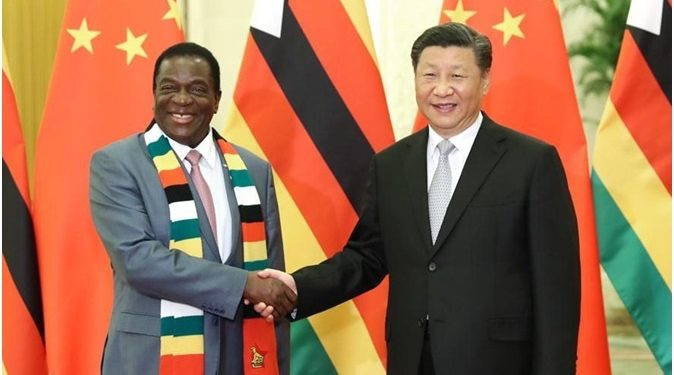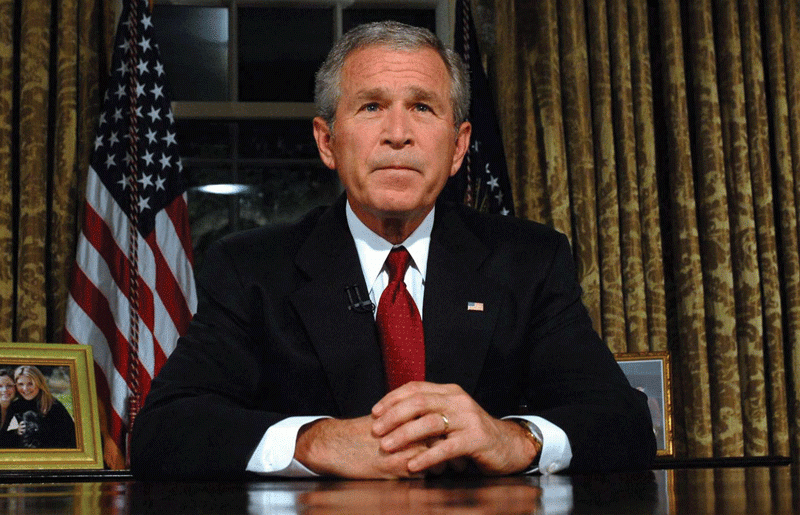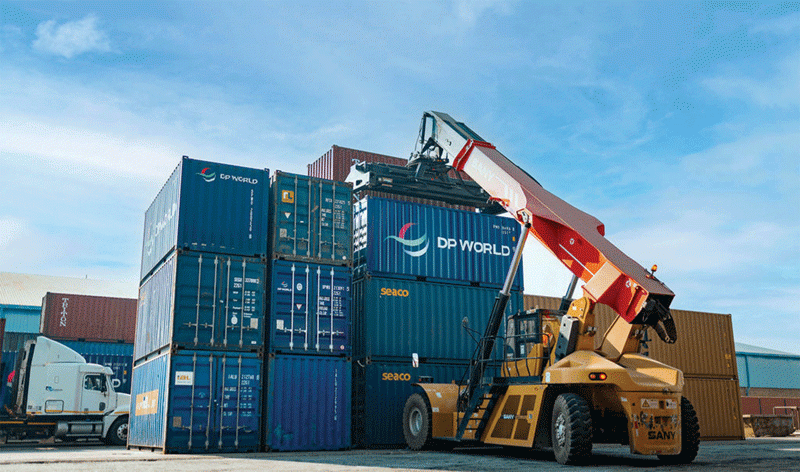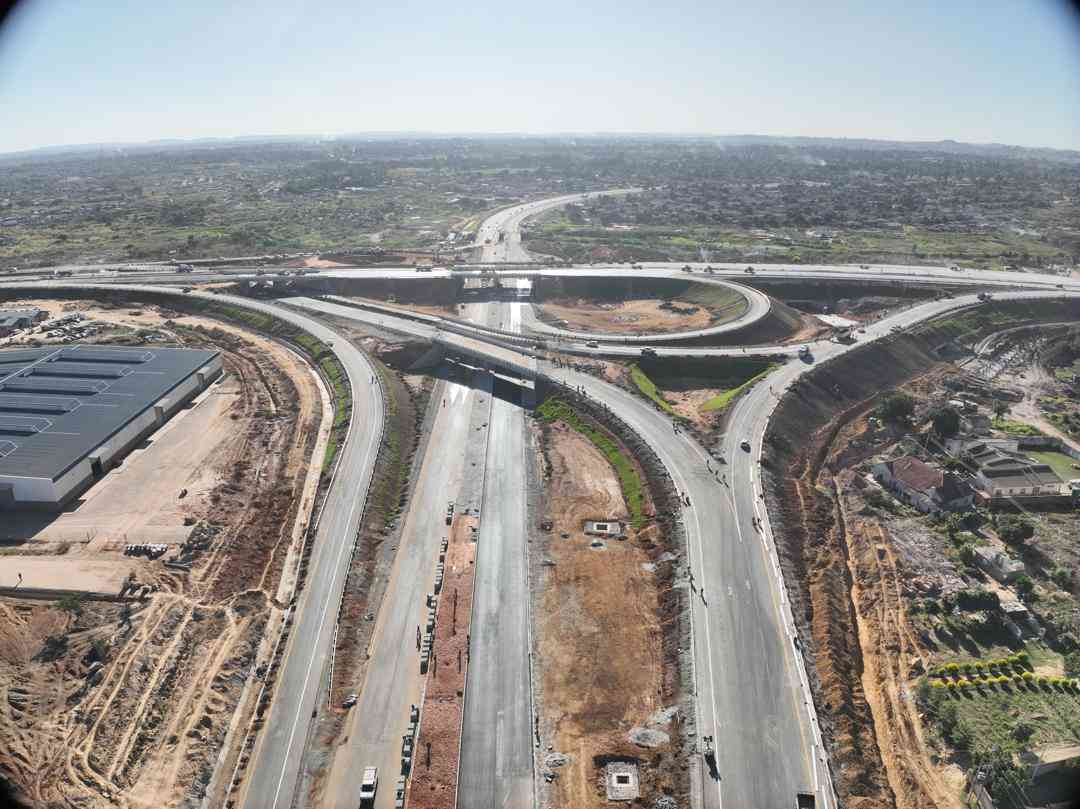
On April 18, Zimbabwe celebrated Independence Day, a special occasion for honouring its past struggles and envisioning a hopeful future.
A key feature of Independence Day is reflecting on Zimbabwe’s journey, mapping Zimbabwe’s place in the world and how the world has shaped and continues to shape the nation. In this sense, one can also imagine how the world could be shaped by it.
Developments in the international arena have had a profound impact on the country: Zimbabwe was a victim of 19th-century Western imperialism and colonialism, culminating in British colonisation in 1890. It took a protracted armed liberation struggle — at a cost of an estimated 50 000 lives — to free the country and attain independence and freedom.
The struggle for Zimbabwe was shaped by important developments in the international arena such as post World Wars’ nationalist and labour movements, while the founding of the People’s Republic of China in 1949, and the rise of Mao Zedong represented a pivotal historical turning point.
Under Mao, the Communist Party of China (CPC) and the government of the PRC became key cogs in the liberation struggles in Africa, Asia and Latin America, providing ideological, military and technical support to liberation movements worldwide during China’s own resource-constrained era, underscoring its commitment and sacrifices, including loss of lives - such as the scores of Chinese workers who lost their lives during the construction of the 1 170km Tanzania-Zambia Railway (Tazara), which helped landlocked Zambia bypass white ruled neighbours for trade.
In Zimbabwe’s quest of Independence, Mao was a powerful figure as an ideological reference point. He was also celebrated and followed for guerilla war tactics, which became an inspiring reference point for fighting a mighty settler colonial force.
The Zimbabwe African National Liberation Army (Zanla), the military wing of the Zimbabwe African National Union party, which received support from China, is credited for bringing Independence to Zimbabwe.
China has remained arguably the most important ally of Zimbabwe.
- Zipra war vets demand Gukurahundi report
- Challenges of a new world order
- Foreign diplomats in China view COVID response policy adjustment timely, necessary
- Once we were liberators, now we are subjugators — Zanu PF and its history of violence
Keep Reading
Linking the past, present, future
On a rainy April 18, 2025, Zimbabwe’s leader, President Emmerson Mnangagwa officiated at the Independence celebrations, held in the Midlands province.
President Mnangagwa was one of Zimbabwe’s first cadres to receive military training in China. In many ways, he is the link of the past, present and future between Zimbabwe and China.
The two sides have reached significant milestones throughout these years, economically, socially and diplomatically — making Zimbabwe one of the most important partners of China in Africa. It is also true that there have been significant gaps and missed opportunities in the period. Studies of the relations between the two countries have indicated that there have been periods, such as early years of Zimbabwe’s Independence when Zimbabwe was seen as aligning and relying more to the Western neoliberal system than China.
From 2003, Zimbabwe adopted the Look East Policy that was predicated on closer economic cooperation with China following the imposition of sanctions on the country by the West.
Since then, Zimbabwe has had closer relations with the Asian giant, although there are significant gaps, as Zimbabwe, for example, is still outside China’s top 10 trading partners on the African continent.
Over the past two decades, China’s trade relations with Africa have grown significantly. Bilateral trade surged from US$11,67 billion in 2000 to US$296 billion in 2024. By comparison, US-Africa trade has stymied, reaching US$80 billion in 2024.The Forum on China-Africa Cooperation (Focac), established in 2000, is a strategic platform promoting economic, social, and cultural collaboration between China and African nations. It focuses on trade, investment, infrastructure, education, and sustainable development through triennial ministerial conferences.
Focac supports initiatives such as debt relief, capacity building, and infrastructure construction, aligning with the African Union’s Agenda 2063 and China’s Belt and Road Initiative to foster shared prosperity and strengthened ties.
On top of this, China has in the past decade or so introduced a number of “Global Initiatives” that reflect its vision for a multipolar world. These include the Belt and Road Initiative, Global Development Initiative, the Global Security Initiative, and the Global Civilisation Initiative, whose foci and goals range from infrastructure and connectivity, advancing sustainable development, building a new security framework based on mutual respect, dialogue, and non interference; and advocating respect for cultural diversity, inclusivity, and inter-civilisational dialogue through mutual understanding and cooperation among nations.
As Chinese President Xi Jinping says, the world is undergoing profound changes unseen in a century, and China is leading the emergence of “a new global order” whose centre is the Global South. There is a sense that the situation currently in the international arena is similar to the one half a century ago, with the former “Third World” — now commonly known as “Global South” —struggling against Western domination under a new set of circumstances.
It is like two sides of the same coin — two eras, same players.
Going forward
Zimbabwe’s relations with China, from history to the present can be understood in the context of cooperation and friendship against Western hegemony.
It is clear that at present, Zimbabwe has once again chosen to align with China to enter the next phase, which is the multipolar world.
However, there is need to recognise that simply aligning ideologically and politically is not enough. Learning from the past where Zimbabwe has not fully consummated its relationship and potential with China, there is need to take this year's Independence as an opportunity for introspective, soul-searching reflection.
China was the first country to establish diplomatic relations with Zimbabwe in April 1980, and 45 years — going towards half a century in five years’ time, ain’t a small deal.
The relationship is maturing, and so should be how both sides approach their cooperation.
Last year, during President Mnangagwa's state visit to China, the two sides signed 17 cooperative agreements. The two heads of state also reached an agreement to establish a "five-star ironclad" cooperation framework.
With the marking of the 45th anniversary of the establishment of diplomatic ties between China and Zimbabwe, China has expressed willingness "to work with Zimbabwe to implement the important consensus reached by the heads of state of the two countries, and promote Zimbabwe's path of industrialisation and modernisation by carrying out the Ten Partnership Actions under the Framework of the Focac. Harnessing the potential of this relationship, and in the context of global dynamics, requires careful consideration and a particularly smart approach to maximise mutual benefits and win-win outcomes.
The future is uncertain, by all accounts, but China has shown itself to be a reliable partner for nearly 100 years working with the downtrodden people of the world, sacrificing at first its scant resources, and now broadening and sharing opportunities within its ever-expanding cake.
Zimbabwe must work towards deepening trust and building confidence that it is an equally reliable friend and partner, and this is particularly a challenge for leaders and policymakers. At the same time, ordinary people can build mutual friendship and affinity with Chinese people, which is a key imperative in a globalised world. Young people on both sides should recognise the historical opportunity and take the challenge to be leaders of tomorrow in the sense that the previous generations identified the zeitgeist of liberation and fighting imperialism in the last century.
Building trust and reliability is key to building confidence and certainty upon which building a community with a shared future - a philosophical concept that China is promoting — can be predicated upon.











